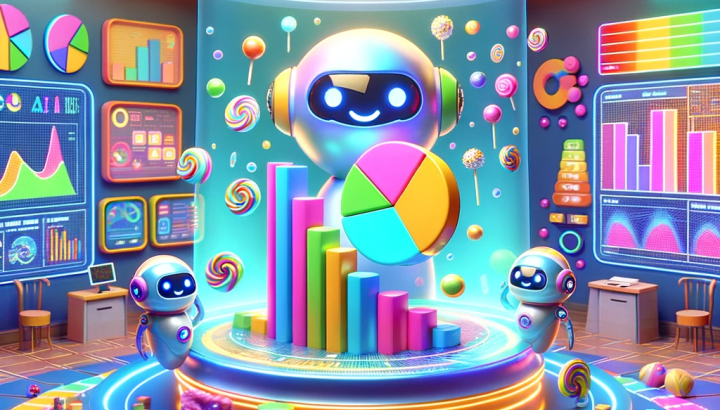Reimagining Data Science: The Rise of LLM-Powered Agents
Generative AI transforming data science, analytics, and visualization with LLM-powered agents.
5 mins reading time
I feel that over the last few months alone, with generative AI’s recent strides, we’re on the brink of a new era, one that promises to shift the paradigm of data science, analytics and data visualisation completely.
LLM-Powered Agents
One of the most recent ones I wanted to share today takes LLMs and conversational bots to a whole new level. It’s about LLM-powered agents or multi-agent conversation frameworks such as AutoGen, AutoGPT, AgentGPT and so many others.
Take AutoGen, in particular. Such a promising tool.
I took it for a quick spin earlier on the weekend and (while I had to familiarise myself with it and ended up hitting OpenAI’s API limits sooner than I thought) it looked like there were so many ways to incorporate that in my workflow. It was a super accessible way to leverage LLMs and augment the way data science work is done.
Analytics Workflows Reimagined
Just imagine having a team of “virtual” analysts, each with specialised abilities, collaborating to solve complex data problems. You are not just alone anymore, having to decipher a problem your boss throws at you, or individually crunching numbers or processing data – it’s about having an efficient team generating insights dynamically, in real-time, and with unprecedented efficiency.
Data Visualisation Projects Delivered Faster
For example, take a simple data visualisation project. We often rely on our clients or boss to provide us with a brief and then we go on to spend some time introspecting about it, researching ways to solve it,etc. With AutoGen, for example, we could spin up one agent that can help define a problem we throw at it based on a shonky original brief, another agent can gather data from a database or file systems, another who can process it and come up with ideas to analyse it, and perhaps another who can apply detailed analysis and start visualising it. And this cooperative approach is applicable across all domains of data science… and beyond!
Machine-Human Augmentation
Take, for instance, a business tracking customer purchasing patterns. Analysts are heavily involved in such tasks. One would manually sift through sales data, use software to find trends, and then create visualisations. With AutoGen type frameworks, this process is dramatically augmented: an agent could be instructed to autonomously retrieve sales data, another applies some fancy analytics to detect purchasing trends, while a third automatically generates a detailed visualisation, a fourth one summarises it and puts it down in words for you to present. This AI-assisted workflow dramatically accelerates the creation and the delivery of insights.
I feel that the potential for an augmented analytics workflow becomes tangible. Analysts can now generate insights with the assistance of multiple agents, each enhancing the capabilities of the human counterpart. The implications are huge – from the way we work to how organisations manage their data-rich environments.
Implications For Professionals
For us professionals, the call to action is clear: domain knowledge is only going to get more important. Upskill and hone your sense-making abilities. The more I played with it, I felt that the key differentiator will be our ability to steer these workflows in the right direction. There is an important human-in-the-loop component in, at least, AutoGen, ensuring that outputs align with real-world contexts.
Implications for Businesses
For organisations, I believe they stand to gain immensely from this AI-powered multi-agent augmentation. The traditional model of having a team of data scientists for various analytical needs might soon give way to a more hybrid workforce, where AI agents work alongside humans, each playing to their strengths. This change could lead to more agile data practices, faster decision-making, and a more innovative approach to problem-solving.
Short-Term Hurdle
A couple of big challenge I am currently: one is the the novelty of multi-agent AI frameworks. This will necessitate a paradigm shift in data strategy, demanding visionary thinking and a willingness to embrace change. As these technologies redefine the boundaries of data science, executives must become students once more, educating themselves and their teams on the potential and practicalities of such cutting-edge tools. The other one is around privacy: not only due to the nature of their training data but also in how they handle proprietary data. When organizations feed their private data into these models for advanced analytics, there’s a risk of data leakage or unauthorized access. I see the idea of things like PrivateGPT as a valid one.
Is Data Science Dead?
What does this mean for the future of data science as a profession? Hopefully, far from making data scientists obsolete, AutoGen and similar tech will enhance our roles, allowing us (or forcing us?) to become more strategic, creative problem-solvers. We’ll become more like technical orchestrators, directing these AI-powered agents to delve into data in ways previously unimaginable! I feel it signals a rebirth to our profession.
We must prepare for this new world by embracing the changes, upgrading our skill sets, and learning to collaborate with our new virtual colleagues. The future of data science isn’t dead – it’s being rewritten.